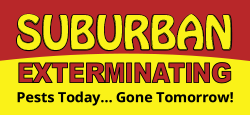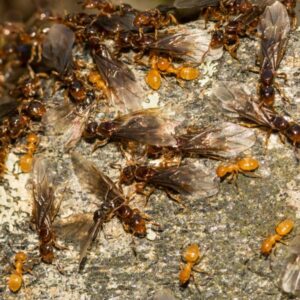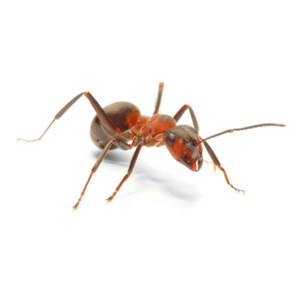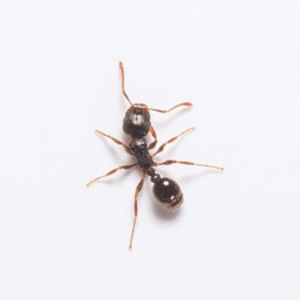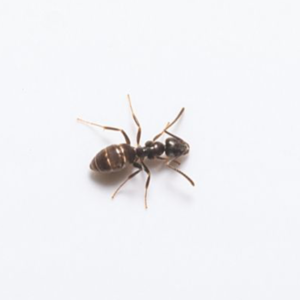Thief Ants in Suffolk County & Nassau County
Thief ants get their name from their habit of nesting near other, larger ants, then entering their nest to steal food and prey upon larvae. Found throughout much of Suffolk County & Nassau County, their nests are connected to the nests they rob by galleries that are too small for other ant species to access, but big enough for the tiny worker thief ants to move freely. Feeding on rodents and insects, thief ants also feed on potato chips and other greasy foods. They invade homes through cracks and crevices contaminating stored pantry products and packaged food items.
Thief Ant Habitat
Nests outside are located in exposed soil, under rocks, or in rotting wood. Inside homes and businesses, thief ants nest in woodwork and masonry. Thief ants enter structures through small gaps in the foundation or small openings in woodwork during warm weather. They utilize electrical wiring in wall voids to move from room to room. These ants forage in trails throughout a home or building seeking greasy foods, protein, and dairy. Thief ants are commonly found in kitchen and food prep areas of homes and businesses.
Thief Ant Behaviors, Threats or Dangers
Although thief ants rarely bite, they are considered a dangerous pest as they feed on dead rats, mice, and insects, contaminating food as they forage. When entering homes, thief ants may be carriers of disease-producing organisms, transmitting pathogens from a food source to human food. Thief ants trail inside cabinets, on walls, baseboards, tree branches, and shrubs. Due to their small size, they are able to forage into packaged foods. If a thief ant infestation is suspected, it is recommended to contact a licensed ant exterminator.
